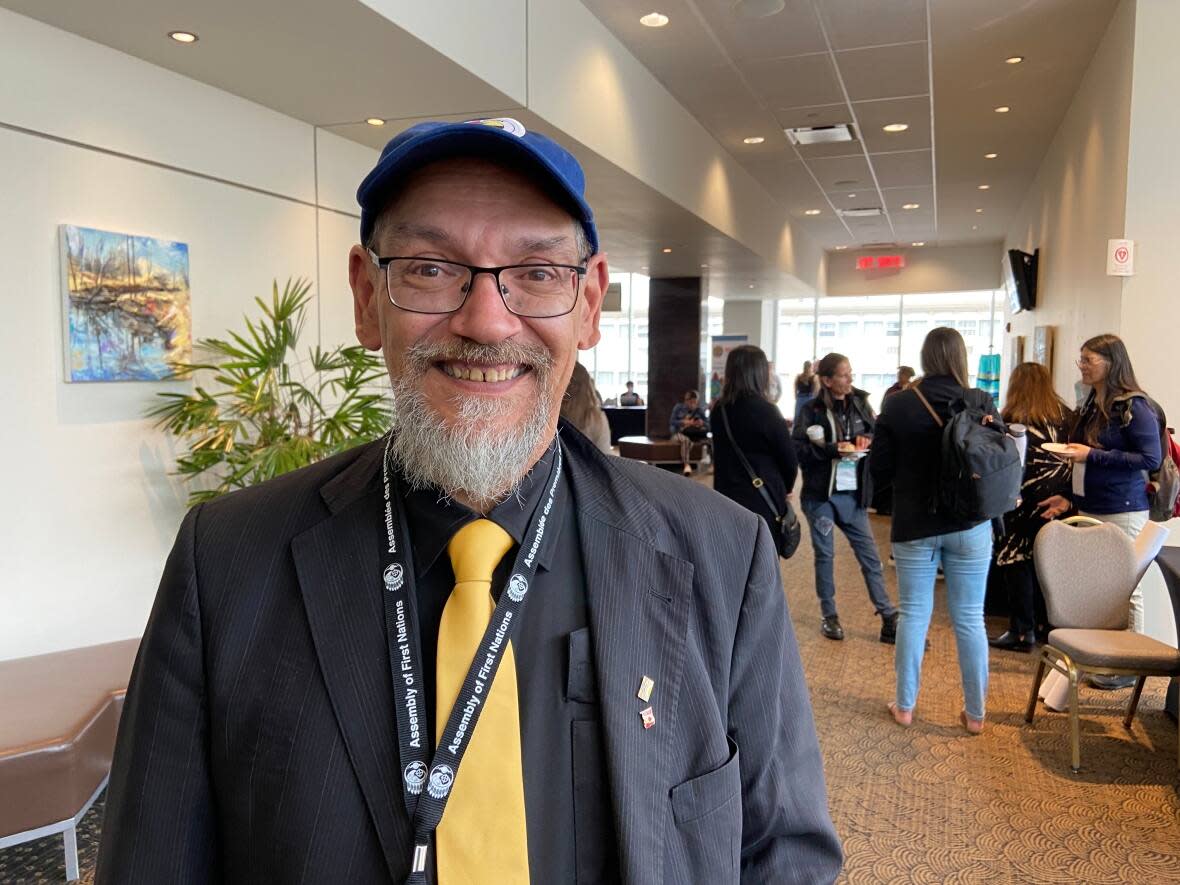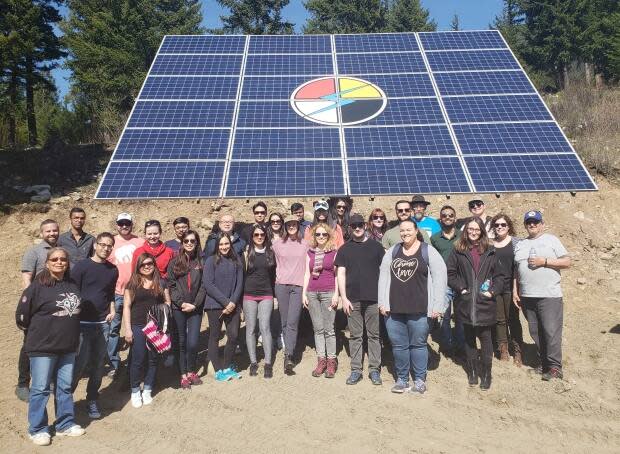First Nations climate conference urged to think DIY to create self-sufficiency

If First Nation communities want to be ready for tomorrow's climate change challenges, don't wait on help or support from the government, says the former chief in British Columbia.
Patrick Michell was at the National Climate Gathering of the Assembly of First Nations in Fredericton to share what he considers the success story of his community.
It "broke dependency," he said, by creating its own revenue streams and arriving at a place where it expects to be water and food secure for the next 100 years.
"We've got a plan for food security that is built on water security. We've established water security for the next 100 years for ecosystems' health, for drinking, for fire protection, for energy production.
"But we've also established systems in energy, transportation, communications and waste management that are also resilient. The only thing we forgot to do is ask Ottawa for help," Michell said.

Michell was part of a panel presenting at the conference, attended by leaders from about 500 First Nations communities across the country.
Michell is scheduled to deliver a more detailed presentation Thursday on how Kanaka Bar First Nation became self-sufficient.
'If Kanaka Bar can do it, why can't you?'
He said his community's path to self-sufficiency started in 1973 with the Calder decision, where the Supreme Court of Canada ruled that Aboriginal title existed over lands in British Columbia.
From there, the community built its own hydro-electric dam on the Fraser River, which it uses to generate power for residents and also to sell back to BC Hydro.

That revenue has since been used to invest in smaller green energy projects to power housing, an administration centre, a health centre, weather station and more.
"You can grow your own meats, fruits, and vegetables, you can generate your own electricity, you can create and produce your own potable water," Michell said.
"How? Look at Kanaka Bar. We did it. So if Kanaka Bar can do it, why can't you?"
Different circumstances in N.B., says Mi'qmaw chief
Ugpi'ganjig First Nation Chief Sacha Labillois was on the panel with Michell, and talked about her community's efforts to restock the salmon in Eel River, just south of Dalhousie, N.B
She's also raised alarms in the past about rising sea levels caused by climate change, and how coastal erosion is threatening homes and shrinking the size of the community.

She said she agrees with Michell's advice on First Nations becoming self-sufficient, but added that communities in New Brunswick are operating under different circumstances than those in British Columbia.
"Unfortunately for us here in New Brunswick, we don't exactly have the same relationship maybe that they do in B.C. with their provincial government," Labillois said.
"Patrick touched a lot on the duty to consult and impact benefit agreements with industry, but also with resource sharing with the provincial government of B.C."
Labillois said First Nations communities in New Brunswick currently don't have any resource sharing agreements, which would let them benefit from profits enjoyed by companies in sectors such as forestry.
She also noted the province's 2021 decision to cancel the agreement it to share sales tax revenue with First Nations for goods and services sold in their communities.
"So we're in a less fortunate situation, however, [Michell] made a really great point, and I think it's time that the Indigenous communities in New Brunswick are treated as an equal governing partner with the provincial government and that the resources in this province are shared with the Indigenous communities."

 Yahoo Movies
Yahoo Movies 
